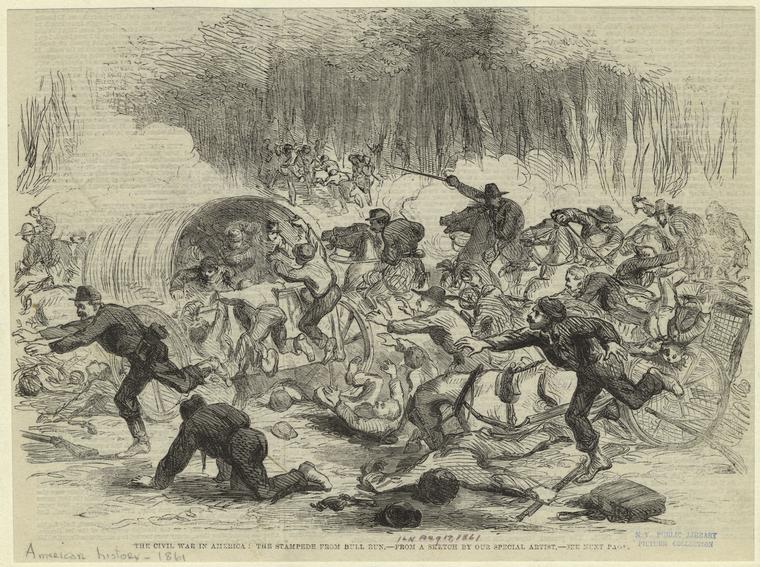"Into the flames: An ambitious reappraisal of the bloody war between the states," Economist, November 11, 2010.
AMERICANS proudly, and understandably, stress the exceptional character of their history. Yet from the beginning it has been intertwined with larger narratives of European, Atlantic
 and world history, including themes of migration, trade, ideology and power. The American revolution itself was an episode in the long conflict between Britain and France. Now Amanda Foreman, an Anglo-American historian, has looked at the American civil war “as it was seen by Britons in America, and Americans in Britain”. She points out that it was a defining moment not just in American history but in the relations between the two countries.>>>
and world history, including themes of migration, trade, ideology and power. The American revolution itself was an episode in the long conflict between Britain and France. Now Amanda Foreman, an Anglo-American historian, has looked at the American civil war “as it was seen by Britons in America, and Americans in Britain”. She points out that it was a defining moment not just in American history but in the relations between the two countries.>>>Jenny Upchurch, "Civil War history comes to life at Nashville celebration. Re-enactors kick off state's celebration," Tennessean, November 13, 2010.
100 re-enactors . . . return today to the Bicentennial Mall in downtown Nashville to cook, march, fire cannons, make glass photo negatives and pump the bellows of a charcoal fire. The living history event at the state park, setting the scene of the beginning of the Civil War in 1860, kicks off the state's celebration of the war's 150th anniversary.>>>
Fredrick Kunkle, "In Richmond, a Civil War expert seeks to emancipate history's narrative," Washington Post, November 7, 2010.
. . . [Edward Ayers says,] "I am trying to get us to rethink what the war is about, and what we've being doing in Richmond is instead of talking of one sesquicentennial, one anniversary, it's really two: One's the Civil War, and the other's Emancipation," Ayers says, with the faintest drawl. "The main thing that happened, the consequence of the war, was freedom for 4 million people who had been held in bondage for over two centuries in this country.">>>
Ted Widmer, "Lincoln’s Mailbag," New York Times, November 12, 2010.
. . . Most of Lincoln’s correspondence is housed in the Library of Congress, just off the East Portico of the Capitol, where he gave his two great inaugural addresses. (They are there, too.) The Library is a national treasure, both for its holdings and for its robust commitment to make these priceless artifacts available to all. That means putting them online, for free, which the Library has been doing since February 2000, with scholarly support from the Lincoln Studies Center at Knox College.>>>
Bruce Smith, "Black SC Civil War vet honored with grave marker," Washington Post, November 11, 2010.
CHARLESTON, S.C. -- Almost 100 years after his death, a black Union Civil War vet from South Carolina finally has a veterans marker on his grave. The gravestone for Henry Benjamin Noisette was unveiled Thursday in a black Charleston cemetery. Noisette escaped slavery and joined the U.S. Navy in 1862.>>>






No comments:
Post a Comment